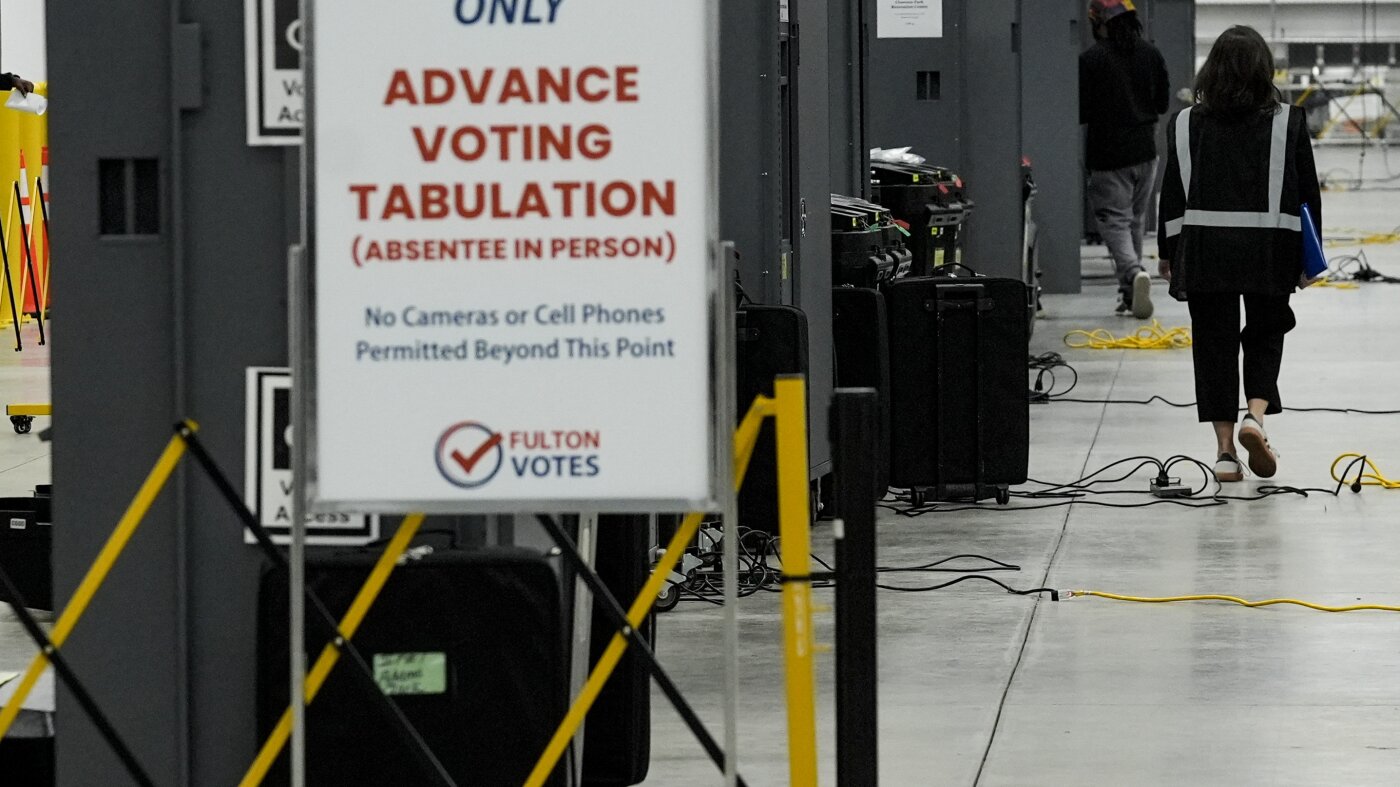Illinois
3 Interesting Trends for Michigan State vs. Illinois

Michigan State will be looking to get back to .500 this weekend when it faces Illinois on the road. Not only would a win give the Spartans an even record with two games to go, but it would bring them one step closer to a bowl game, a bid that requires just two more victories.
Let’a look at three interesting trends heading into the contest:
Michigan State is 4-1 in its last five trips to Illinois
Dating back to 2005, when the Spartans made the trip to Champaign, Illinois, they were successful. Michigan State has gotten the best of Illinois, winning four of their last five matchups.
In those five games, Michigan State has completely dominated Illinois, outscoring the Fighting Illini by 100 points, 177-77.
Most recently, the Spartans beat the No. 16 Fighting Illini 23-15, in November 2022. That game marks the last ranked win for the Spartans.
This will be the first time Michigan State coach Jonathan Smith will face off against Bret Bielema and the Fighting Illini.
The Spartans’ recent struggles on the road
The Spartans have had chances for statement victories on the road over the past few years but they are 3-11 on the road since the departure of Kenneth Walker.
This season, the Spartans did have an impressive win at Maryland, but the Terrapins aren’t known for their home atmosphere, which was mostly Spartans fans back in September.
Michigan State has been tested on the road this season with losses to Boston College, Oregon and Michigan. The Spartans had their chances to win those games, but ultimately, too many turnovers caught up to Michigan State.
Michigan State have been underdogs in all four away games this season and against Illinois, the Spartans are three-point underdogs.
The difference in response after bye week
Both teams are coming off of their second bye week of the season. Looking back, both teams responded differently after their first bye week.
The Spartans came out strong off their bye in mid-October, beating the Iowa Hawkeyes, 32-20.
The Michigan State defense played well, limiting the Hawkeyes to zero first-half points and relatively shutting down running back Kaleb Johnson, the best back in the conference.
This bright spot for the Spartans is in their lone win since September and the best they’ve looked all season. It is possible the bye week had something to do with the Spartans’ performance against Iowa.
On the other hand, Illinois stumbled out of the bye week, with a nail-biting 50-49 overtime win over Purdue, the consensus worst team in the Big Ten.
The Fighting Illini defense was shuttered, allowing over 500 yards of offense to a poor Boilermakers’ offense.
If both teams play to the level they did coming off their first bye week, then Michigan State will have the advantage.
Don’t forget to follow the official Spartan Nation Page on Facebook Spartan Nation WHEN YOU CLICK RIGHT HERE, and be a part of our vibrant community group Go Green Go White as well WHEN YOU CLICK RIGHT HERE.

Illinois
Ted Dabrowski running for Illinois Gov. | The Chicago Report

Believe it or not – we are only weeks away from early voting here in the 2026 primary elections. There are several contested races to think about – one of them is the race for Governor. J.B. Pritzker is uncontested on the democratic side to seek a third term leading Illinois. But several candidates are vying to be the nominee on the republican side – and tonight we meet one, Ted Dabrowski – a North Shore businessman and former policy analyst for the publication Wirepoints.
Illinois
Fire sweeps through apartment building, displaces residents in Woodridge, Illinois

People ran out of their homes into the cold overnight Tuesday into Wednesday after a fire broke out in an apartment building in the western Chicago suburb of Woodridge.
The fire broke out in a multi-family building at 7900 Janes Ave., near Forest Drive.
Smoke was seen billowing as firefighters stood on the roof.
One firefighter suffered minor injuries fighting the blaze, according to the Lisle-Woodridge Fire Protection District.
Fire officials said several units have major damage, and the families who reside in them have been displaced.
The American Red Cross was assisting the displaced residents Wednesday morning.
Illinois
Illinois Racing Board suspends Hawthorne Race Course’s license, putting future in jeopardy

STICKNEY, Ill. (WLS) — The future of racing at Hawthorne Race Course in south suburban Stickney is in jeopardy.
The Illinois Racing Board suspended its harnesses racing license. In a letter sent Monday to Hawthorne’s president and general manager, the state agency said the track failed to prove its financial integrity.
ABC7 Chicago is now streaming 24/7. Click here to watch
Jeff Davis, president of the Illinois Harness Horsemen’s Association, says the past two months have been rough.
“We don’t really know details, but what we do know is people have not been paid since before Christmas,” Davis said.
Davis says checks started bouncing, which led to races being canceled over the past few weekends.
SEE ALSO | Hawthorne Race Course not offering window betting for Kentucky Derby amid Churchill Downs dispute
“Six weeks ago, they couldn’t cash a $400 check to a trainer,” Davis said.
The remaining three races left this season are unlikely unless Hawthorne owners can prove financial stability. Hawthorne officials have not returned messages seeking comment on the issue. But it is just one of many issues facing the track. There has been an effort for nearly six years to get an approved casino up and running, but the owners cannot find a partner.
“Horse racing in every state now only survives because it has additional forms of revenue from casinos, slot machines,” said Paulick Report Publisher Ray Paulick.
Hawthorne is the only racetrack in the Chicago area and has the right to veto another one built within 35 miles. But those in the industry hope a bill before the state legislature will repeal that.
“The harness horsemen are asking the state legislature to take away that exclusivity, because Hawthorne isn’t in a position to build another track if they can’t keep the one they have going,” Paulick said.
READ MORE | Hawthorne Race Course, Illinois’ oldest horse racing track poised to be first with casino
In the meantime, Davis says he hopes the season can be salvaged.
“It really is sad. It’s a 100-year-old business. They’ve been trying, but I don’t know if they have the ability to actually get done what they’ve been awarded to do,” Davis said.
The Illinois Racing Board will hold its monthly meeting on Wednesday, and Hawthorne’s owner is scheduled to give an update on the track.
Copyright © 2026 WLS-TV. All Rights Reserved.
-

 Illinois7 days ago
Illinois7 days agoIllinois school closings tomorrow: How to check if your school is closed due to extreme cold
-

 Pittsburg, PA1 week ago
Pittsburg, PA1 week agoSean McDermott Should Be Steelers Next Head Coach
-

 Pennsylvania3 days ago
Pennsylvania3 days agoRare ‘avalanche’ blocks Pennsylvania road during major snowstorm
-

 Lifestyle1 week ago
Lifestyle1 week agoNick Fuentes & Andrew Tate Party to Kanye’s Banned ‘Heil Hitler’
-

 Sports1 week ago
Sports1 week agoMiami star throws punch at Indiana player after national championship loss
-

 Science1 week ago
Science1 week agoContributor: New food pyramid is a recipe for health disasters
-

 Technology6 days ago
Technology6 days agoRing claims it’s not giving ICE access to its cameras
-

 Politics3 days ago
Politics3 days agoTrump’s playbook falters in crisis response to Minneapolis shooting




















